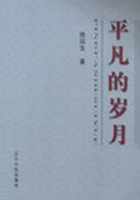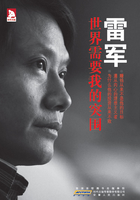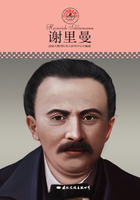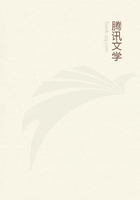1784-1794
Bonaparte enters the Military College of Paris-He urges me to embrace the military profession-His report on the state of the Military School of Paris-He obtains a commission-I set off for Vienna-Return to Paris, where I again meet Bonaparte-His singular plans for raising money-Louis XVI, with the red cap on his head- The 10th of August-My departure for Stuttgart-Bonaparte goes to Corsica-My name inscribed on the list of emigrants-Bonaparte at the siege of Toulon-Le Souper de Beaucaire-Napoleon's mission to Genoa-His arrest-His autographical justification -Duroc's first connection with Bonaparte.
Bonaparte was fifteen years and two months old when he went to the Military College of Paris.
-[Madame Junot relates some interesting particulars connected with Napoleon's first residence in Paris: "My mother's first care," says she, "on arriving in Paris was to inquire after Napoleon Bonaparte. He was at that time in the military school at Paris, having quitted Brienne in the September of the preceding year.
"My uncle Demetrius had met him just after he alighted from the coach which brought him to town; 'And truly.' said my uncle, 'he had the appearance of a fresh importation. I met him in the Palms Royal, where he was gaping and staring with wonder at everything he saw. He would have been an excellent subject for sharpers, if, indeed, he had had anything worth taking!' My uncle invited him to dine at his house; for though my uncle was a bachelor, he did not choose to dine at a 'traiteur' (the name 'restaurateur' was not then introduced). He told my mother that Napoleon was very morose. 'I fear,' added he, 'that that young man has more self-conceit than is suitable to his condition. When he dined with me he began to declaim violently against the luxury of the young men of the military school. After a little he turned the conversation on Mania, and the present education of the young Maniotes, drawing a comparison between it and the ancient Spartan system of education. His observations on this head he told me he intended to embody in a memorial to be presented to the Minister of War. All this, depend upon it, will bring him under the displeasure of his comrades; and it will be lucky if he escape being run through.' A few days afterwards my mother saw Napoleon, and then his irritability was at its height. He would scarcely bear any observations, even if made in his favour, and I am convinced that it is to this uncontrollable irritability that he owed the reputation of having been ill-tempered in his boyhood, and splenetic in his youth. My father, who was acquainted with almost all the heads of the military school, obtained leave for him sometimes to come out for recreation. On account of an accident (a sprain, if I recollect rightly) Napoleon once spent a whole week at our house. To this day, whenever I pass the Quai Conti, I cannot help looking up at a 'mansarde' at the left angle of the house on the third floor. That was Napoleon's chamber when he paid us a visit, and a neat little room it was. My brother used to occupy the one next to it. The two young men were nearly of the same age: my brother perhaps had the advantage of a year or fifteen months. My mother had recommended him to cultivate the friendship of young Bonaparte; but my brother complained how unpleasant it was to find only cold politeness where he expected affection. This repulsiveness on the part of Napoleon was almost offensive, and must have been sensibly felt by my brother, who was not only remarkable for the mildness of his temper and the amenity and grace of his manner, but whose society was courted in the most distinguished circles of Paris on account of his accomplishments. He perceived in Bonaparte a kind of acerbity and bitter irony, of which he long endeavoured to discover the cause. 'I believe,' said Albert one day to my mother, 'that the poor young man feels keenly his dependent situation.'" ('Memoirs of the Duchesse d'Abrantes, vol. i. p. 18, edit. 1883).]
I accompanied him in a carriole as far as Nogent Sur Seine, whence the coach was to start. We parted with regret, and we did not meet again till the year 1792. During these eight years we maintained an active correspondence; but so little did I anticipate the high destiny which, after his elevation, it was affirmed the wonderful qualities of his boyhood plainly denoted, that I did not preserve one of the letters he wrote to me at that period, but tore them up as soon as they were answered.
-[I remember, however, that in a letter which I received from him about a year after his arrival in Paris he urged me to keep my promise of entering the army with him. Like him, I had passed through the studies necessary for the artillery service; and in 1787 I went for three months to Metz, in order to unite practice with theory. A strange Ordinance, which I believe was issued in 1778 by M. de Segur, required that a man should possess four quarterings of nobility before he could be qualified to serve his king and country as a military officer. My mother went to Paris, taking with her the letters patent of her husband, who died six weeks after my birth. She proved that in the year 1640 Louis XIII. had, by letters patent, restored the titles of one Fauvelet de Villemont, who in 1586 had kept several provinces of Burgundy subject to the king's authority at the peril of his life and the loss of his property; and that his family had occupied the first places in the magistracy since the fourteenth century. All was correct, but it was observed that the letters of nobility had not been registered by the Parliament, and to repair this little omission, the sum of twelve thousand francs was demanded. This my mother refused to pay, and there the matter rested.]
On his arrival at the Military School of Paris, Bonaparte found the establishment on so brilliant and expensive a footing that he immediately addressed a memorial on the subject to the Vice-Principal Berton of Brienne.-
-[A second memoir prepared by him to the same effect was intended for the Minister of War, but Father Berton wisely advised silence to the young cadet (Iung, tome i. p. 122). Although believing in the necessity of show and of magnificence in public life, Napoleon remained true to these principles. While lavishing wealth on his ministers and marshals, "In your private life," said be, "be economical and even parsimonious; in public be magnificent" (Meneval, tome i. p. 146).]
He showed that the plan of education was really pernicious, and far from being calculated to fulfil the object which every wise government must have in view. The result of the system, he said, was to inspire the pupils, who were all the sons of poor gentlemen, with a love of ostentation, or rather, with sentiments of vanity and self-sufficiency; so that, instead of returning happy to the bosom of their families, they were likely to be ashamed of their parents, and to despise their humble homes. Instead of the numerous attendants by whom they were surrounded, their dinners of two courses, and their horses and grooms, he suggested that they should perform little necessary services for themselves, such as brushing their clothes, and cleaning their boots and shoes; that they should eat the coarse bread made for soldiers, etc. Temperance and activity, he added, would render them robust, enable them to bear the severity of different seasons and climates, to brave the fatigues of war, and to inspire the respect and obedience of the soldiers under their command. Thus reasoned Napoleon at the age of sixteen, and time showed that he never deviated from these principles. The establishment of the military school at Fontainebleau is a decided proof of this.
As Napoleon was an active observer of everything passing around him, and pronounced his opinion openly and decidedly, he did not remain long at the Military School of Paris. His superiors, who were anxious to get rid of him, accelerated the period of his examination, and he obtained the first vacant sub-lieutenancy in a regiment of artillery.
I left Brienne in 1787; and as I could not enter the artillery, I proceeded in the following year to Vienna, with a letter of recommendation to M. de Montmorin, soliciting employment in the French Embassy at the Court of Austria.
I remained two months at Vienna, where I had the honour of twice seeing the Emperor Joseph. The impression made upon me by his kind reception, his dignified and elegant manners, and graceful conversation, will never be obliterated from my recollection. After M. de Noailles had initiated me in the first steps of diplomacy, he advised me to go to one of the German universities to study the law of nations and foreign languages. I accordingly repaired to Leipsic, about the time when the French Revolution broke out.
I spent some time at Leipsic, where I applied myself to the study of the law of nations, and the German and English languages. I afterwards travelled through Prussia and Poland, and passed a part of the winter of 1791 and 1792 at Warsaw, where I was most graciously received by Princess Tyszicwiez, niece of Stanislaus Augustus, the last King of Poland, and the sister of Prince Poniatowski. The Princess was very well informed, and was a great admirer of French literature: At her invitation I passed several evenings in company with the King in a circle small enough to approach to something like intimacy. I remember that his Majesty frequently asked me to read the Moniteur; the speeches to which he listened with the greatest pleasure were those of the Girondists. The Princess Tyszicwiez wished to print at Warsaw, at her own expense, a translation I had executed of Kotzebue's 'Menschenhass and Reue, to which I gave the title of 'L'Inconnu'.
-[A play known on the English stage as The Stranger.]
I arrived at Vienna on the 26th of March 1792, when I was informed of the serious illness of the Emperor, Leopold II, who died on the following day. In private companies, and at public places, I heard vague suspicions expressed of his having been poisoned; but the public, who were admitted to the palace to see the body lie in state, were soon convinced of the falsehood of these reports. I went twice to see the mournful spectacle, and I never heard a word which was calculated to confirm the odious suspicion, though the spacious hall in which the remains of the Emperor were exposed was constantly thronged with people.
In the month of April 1792 I returned to Paris, where I again met Bonaparte,
-[Bonaparte is said, on very doubtful authority, to have spent five or six weeks in London in 1791 or 1792, and to have "lodged in a house in George Street, Strand. His chief occupation appeared to be taking pedestrian exercise in the streets of London-hence his marvellous knowledge of the great metropolis which used to astonish any Englishmen of distinction who were not aware of this visit. He occasionally took his cup of chocolate at the 'Northumberland,' occupying himself in reading, and preserving a provoking taciturnity to the gentlemen in the room; though his manner was stern, his deportment was that of a gentleman." The story of his visit is probably as apocryphal as that of his offering his services to the English Government when the English forces wore blockading the coast of Corsica,]
and our college intimacy was fully renewed. I was not very well off, and adversity was hanging heavily on him; his resources frequently failed him. We passed our time like two young fellows of twenty-three who have little money and less occupation. Bonaparte was always poorer than I. Every day we conceived some new project or other. We were on the look-out for some profitable speculation. At one time he wanted me to join him in renting several houses, then building in the Rue Montholon, to underlet them afterwards. We found the demands of the landlords extravagant-everything failed.
At the same time he was soliciting employment at the War Office, and I at the office of Foreign Affairs. I was for the moment the luckier of the two.
While we were spending our time in a somewhat vagabond way,
-[It was before the 20th of June that in our frequent excursions around Paris we went to St. Cyr to see his sister Marianne (Elisa). We returned to dine alone at Trianon.-Bourrienne.]
the 20th of June arrived. We met by appointment at a restaurateur's in the Rue St. Honore, near the Palais Royal, to take one of our daily rambles. On going out we saw approaching, in the direction of the market, a mob, which Bonaparte calculated at five or six thousand men. They were all in rags, ludicrously armed with weapons of every description, and were proceeding hastily towards the Tuilleries, vociferating all kinds of gross abuse. It was a collection of all that was most vile and abject in the purlieus of Paris. "Let us follow the mob," said Bonaparte. We got the start of them, and took up our station on the terrace of the banks of the river. It was there that he witnessed the scandalous scenes which took place; and it would be difficult to describe the surprise and indignation which they excited in him. When the King showed himself at the windows overlooking the garden, with the red cap, which one of the mob had put on his head, he could no longer repress his indignation. "Che coglione!" he loudly exclaimed. "Why have they let in all that rabble! They should sweep off four or five hundred of them with the cannon; the rest would then set off fast enough."
When we sat down to dinner, which I paid for, as I generally did, for I was the richer of the two, he spoke of nothing but the scene we had witnessed. He discussed with great good sense the causes and consequences of this unrepressed insurrection. He foresaw and developed with sagacity all that would ensue. He was not mistaken. The 10th of August soon arrived. I was then at Stuttgart, where I was appointed Secretary of Legation.
At St. Helena Bonaparte said, "On the news of the attack of the Tuilleries, on the 10th of August, I hurried to Fauvelet, Bourrienne's brother, who then kept a furniture warehouse at the Carrousel." This is partly correct. My brother was connected with what was termed an 'enterprise d'encan national', where persons intending to quit France received an advance of money, on depositing any effects which they wished to dispose of, and which were sold for them immediately. Bonaparte had some time previously pledged his watch in this way.
After the fatal 10th of August Bonaparte went to Corsica, and did not return till 1793. Sir Walter Scott says that after that time he never saw Corsica again. This is a mistake, as will be shown when I speak of his return from Egypt.
-[Sir Walter appears to have collected his information for the Life of Napoleon only from those libels and vulgar stories which gratified the calumnious spirit and national hatred. His work is written with excessive negligence, which, added to its numerous errors, shows how much respect he must have entertained for his readers. It would appear that his object was to make it the inverse of his novels, where everything is borrowed from history. I have been assured that Marshal Macdonald having offered to introduce Scott to some generals who could have furnished him with the most accurate, information respecting military events, the glory of which they had shared, Sir Walter replied, "I thank you, but I shall collect my information from unprofessional reports."-Bourrienne.]
Having been appointed Secretary of Legation to Stuttgart, I set off for that place on the 2d of August, and I did not again see my ardent young friend until 1795. He told me that my departure accelerated his for Corsica. We separated, as may be supposed, with but faint hopes of ever meeting again.
By a decree of the 28th of March of 1793, all French agents abroad were ordered to return to France, within three months, under pain of being regarded as emigrants. What I had witnessed before my departure for Stuttgart, the excitement in which I had left the public mind, and the well-known consequences of events of this kind, made me fear that I should be compelled to be either an accomplice or a victim in the disastrous scenes which were passing at home. My disobedience of the law placed my name on the list of emigrants.
It has been said of me, in a biographical publication, that "it was as remarkable as it was fortunate for Bourrienne that, on his return, he got his name erased from the list of emigrants of the department of the Yonne, on which it had been inscribed during his first journey to Germany. This circumstance has been interpreted in several different ways, which are not all equally favourable to M. de Bourrienne."
I do not understand what favourable interpretations can be put upon a statement entirely false. General Bonaparte repeatedly applied for the erasure of my name, from the month of April 1797, when I rejoined him at Leoben, to the period of the signature of the treaty of Campo-Formio; but without success. He desired his brother Louis, Berthier, Bernadotte, and others, when he sent them to the Directory, to urge my erasure; but in vain. He complained of this inattention to his wishes to Bottot, when he came to Passeriano, after the 18th Fructidor. Bottot, who was secretary to Barras, was astonished that I was not erased, and he made fine promises of what he would do. On his return to France he wrote to Bonaparte: "Bourrienne is erased." But this was untrue. I was not erased until November 1797, upon the reiterated solicitations of General Bonaparte.
It was during my absence from France that Bonaparte, in the rank of 'chef de bataillon', performed his first campaign, and contributed so materially to the recapture of Toulon. Of this period of his life I have no personal knowledge, and therefore I shall not speak of it as an eye-witness. I shall merely relate some facts which fill up the interval between 1793 and 1795, and which I have collected from papers which he himself delivered to me. Among these papers is a little production, entitled 'Le Souper de Beaucaire', the copies of which he bought up at considerable expense, and destroyed upon his attaining the Consulate. This little pamphlet contains principles very opposite to those he wished to see established in 1800, a period when extravagant ideas of liberty were no longer the fashion, and when Bonaparte entered upon a system totally the reverse of those republican principles professed in 'Le Souper de Beaucaire.
-[This is not, as Sir Walter says, a dialogue between Marat and a Federalist, but a conversation between a military officer, a native of Nismes, a native of Marseilles, and a manufacturer from Montpellier. The latter, though he takes a share in the conversation, does not say much. 'Le Souper de Beaucaire' is given at full length in the French edition of these Memoirs, tome i. pp. 319-347; and by Iung, tome ii. p. 354, with the following remarks: "The first edition of 'Le Souper de Beaucaire' was issued at the cost of the Public Treasury, in August 1798. Sabin Tournal, its editor, also then edited the 'Courrier d'Avignon'. The second edition only appeared twenty-eight years afterwards, in 1821, preceded by an introduction by Frederick Royou (Paris: Brasseur Aine, printer, Terrey, publisher, in octavo). This pamphlet did not make any sensation at the time it appeared. It was only when Napoleon became Commandant of the Army of Italy that M. Loubet, secretary and corrector of the press for M. Tournal, attached some value to the manuscript, and showed it to several persona. Louis Bonaparte, later, ordered several copies from M. Aurel. The pamphlet, dated 29th duly 1793, is in the form of a dialogue between an officer of the army, a citizen of Nismes, a manufacturer of Montpellier, and a citizen of Marseilles. Marseilles was then in a state of insurrection against the Convention. Its forces had seized Avignon, but had been driven out by the army of Cartesna, which was about to attack Marseilles itself." In the dialogue the officer gives most excellent military advice to the representative of Marseilles on the impossibility of their resisting the old soldiers of Carteaux. The Marseilles citizen argues but feebly, and is alarmed at the officer's representations; while his threat to call in the Spaniards turns the other speakers against him. Even Colonel Iung says, tome ii. p. 372, "In these concise judgments is felt the decision of the master and of the man of war….. These marvellous qualities consequently struck the members of the Convention, who made much of Bonaparte, authorised him to have it published at the public expense, and made him many promises." Lanfrey, vol. i. pp. 201, says of this pamphlets "Common enough ideas, expressed in a style only remarkable for its 'Italianisms,' but becoming singularly firm and precise every time the author expresses his military views. Under an apparent roughness, we find in it a rare circumspection, leaving no hold on the writer, even if events change."]
It may be remarked, that in all that has come to us from St. Helena, not a word is said of this youthful production. Its character sufficiently explains this silence. In all Bonaparte's writings posterity will probably trace the profound politician rather than the enthusiastic revolutionist.
Some documents relative to Bonaparte's suspension and arrest, by order of the representatives Albitte and Salicetti, serve to place in their true light circumstances which have hitherto been misrepresented. I shall enter into some details of this event, because I have seen it stated that this circumstance of Bonaparte's life has been perverted and misrepresented by every person who has hitherto written about him; and the writer who makes this remark, himself describes the affair incorrectly and vaguely. Others have attributed Bonaparte's misfortune to a military discussion on war, and his connection with Robespierre the younger.
-[It will presently be seen that all this is erroneous, and that Sir Walter commits another mistake when he says that Bonaparte's connection with Robespierre was attended with fatal consequences to him, and that his justification consisted in acknowledging that his friends were very different from what he had supposed them to be. -Bourrienne.]
It has, moreover, been said that Albitte and Salicetti explained to the Committee of Public Safety the impossibility of their resuming the military operations unaided by the talents of General Bonaparte. This is mere flattery. The facts are these:
On the 13th of July 1794 (25th Messidor, year II), the representatives of the people with the army of Italy ordered that General Bonaparte should proceed to Genoa, there, conjointly with the French 'charge d'affaires', to confer on certain subjects with the Genoese Government. This mission, together with a list of secret instructions, directing him to examine the fortresses of Genoa and the neighbouring country, show the confidence which Bonaparte, who was then only twenty-five, inspired in men who were deeply interested in making a prudent choice of their agents.
Bonaparte set off for Genoa, and fulfilled his mission. The 9th Thermidor arrived, and the deputies, called Terrorists, were superseded by Albitte and Salicetti. In the disorder which then prevailed they were either ignorant of the orders given to General Bonaparte, or persons envious of the rising glory of the young general of artillery inspired Albitte and Salicetti with suspicions prejudicial to him. Be this as it may, the two representatives drew up a resolution, ordering that General Bonaparte should be arrested, suspended from his rank, and arraigned before the Committee of Public Safety; and, extraordinary as it may appear, this resolution was founded in that very journey to Genoa which Bonaparte executed by the direction of the representatives of the people.
-[Madame Junot throws some light on this Persecution of Bonaparte by Salicetti. "One motive (I do not mean to say the only one)," remarks this lady, "of the animosity shown by Salicetti to Bonaparte, in the affair of Loano, was that they were at one time suitors to the same lady. I am not sure whether it was in Corsica or in Paris, but I know for a fact that Bonaparte, in spite of his youth, or perhaps I should rather say on account of his youth, was the favoured lover. It was the opinion of my brother, who was secretary to Salicetti, that Bonaparte owed his life to a circumstance which is not very well known. The fact is, that Salicetti received a letter from Bonaparte, the contents of which appeared to make a deep impression on him. Bonaparte's papers had been delivered into Salicetti's hands, who, after an attentive perusal of them, laid them aside with evident dissatisfaction. He then took them up again, and read them a second time. Salicetti declined my brother's assistance is the examination of the papers, and after a second examination, which was probably as unsatisfactory as the first, he seated himself with a very abstracted air. It would appear that he had seen among the papers some document which concerned himself. Another curious fact is, that the man who had the care of the papers after they were sealed up was an inferior clerk entirely under the control of Salicetti; and my brother, whose business it was to have charge of the papers, was directed not to touch them. He has often spoken to me of this circumstance, and I mention it here as one of importance to the history of the time.
Nothing that relates to a man like Napoleon can be considered useless or trivial.
"What, after all, was the result of this strange business which might have cost Bonaparte his head?-for, had he been taken to Paris and tried by the Committee of Public Safety, there is little doubt that the friend of Robespierre the younger would have been condemned by Billaud-Varennes and Collot d'Herbois. The result was the acquittal of the accused. This result is the more extraordinary, since it would appear that at that time Salicetti stood in fear of the young general. A compliment is even paid to Bonaparte in the decree, by which he was provisionally restored to liberty. That liberation was said to be granted on the consideration that General Bonaparte might be useful to the Republic. This was foresight; but subsequently when measures were taken which rendered Bonaparte no longer an object of fear, his name was erased from the list of general officers, and it is a curious fact that Cambacérès, who was destined to be his colleague in the Consulate, was one of the persons who signed the act of erasure" (Memoirs of the Duchesse d'Abrantes, vol. i, p. 69, edit. 1843).]
Bonaparte said at St. Helena that he was a short time imprisoned by order of the representative Laporte; but the order for his arrest was signed by Albitte, Salicetti, and Laporte.
-[Albitte and Laporte were the representatives sent from the Convention to the army of the Alps, and Salicetti to the army of Italy.]
Laporte was not probably the most influential of the three, for Bonaparte did not address his remonstrance to him. He was a fortnight under arrest.
Had the circumstance occurred three weeks earlier, and had Bonaparte been arraigned before the Committee of Public Safety previous to the 9th Thermidor, there is every probability that his career would have been at an end; and we should have seen perish on the scaffold, at the age of twenty-five, the man who, during the twenty-five succeeding years, was destined to astonish the world by his vast conceptions, his gigantic projects, his great military genius, his extraordinary good fortune, his faults, reverses, and final misfortunes.
It is worth while to remark that in the post-Thermidorian resolution just alluded to no mention is made of Bonaparte's association with Robespierre the younger. The severity with which he was treated is the more astonishing, since his mission to Genoa was the alleged cause of it. Was there any other charge against him, or had calumny triumphed over the services he had rendered to his country? I have frequently conversed with him on the subject of this adventure, and he invariably assured me that he had nothing to reproach himself with, and that his defence, which I shall subjoin, contained the pure expression of his sentiments, and the exact truth.
In the following note, which he addressed to Albitte and Salicetti, he makes no mention of Laporte. The copy which I possess is in the handwriting of, Junot, with corrections in the General's hand. It exhibits all the characteristics of Napoleon's writing: his short sentences, his abrupt rather than concise style, sometimes his elevated ideas, and always his plain good sense.
TO THE REPRESENTATIVES ALBITTE AND SALICETTI:
You have suspended me from my duties, put me under arrest, and declared me to be suspected.
Thus I am disgraced before being judged, or indeed judged before being heard.
In a revolutionary state there are two classes, the suspected and the patriots.
When the first are aroused, general measures are adopted towards them for the sake of security.
The oppression of the second class is a blow to public liberty. The magistrate cannot condemn until after the fullest evidence and a succession of facts. This leaves nothing to arbitrary decision.
To declare a patriot suspected is to deprive him of all that he most highly values-confidence and esteem.
In what class am I placed?
Since the commencement of the Revolution, have I not always been attached to its principles?
Have I not always been contending either with domestic enemies or foreign foes?
I sacrificed my home, abandoned my property, and lost everything for the Republic?
I have since served with some distinction at Toulon, and earned a part of the laurels of the army of Italy at the taking of Saorgio, Oneille, and Tanaro.
On the discovery of Robespierre's conspiracy, my conduct was that of a man accustomed to look only to principles.
My claim to the title of patriot, therefore cannot be disputed.
Why, then, am I declared suspected without being heard, and arrested eight days after I heard the news of the tyrant's death.
I am declared suspected, and my papers are placed under seal.
The reverse of this course ought to have been adopted. My papers should first have been sealed; then I should have been called on for my explanation; and, lastly, declared suspected, if there was reason for coming to, such a decision.
It is wished that I should go to Paris with an order which declares me suspected. It will naturally be presumed that the representatives did not draw up this decree without accurate information, and I shall be judged with the bias which a man of that class merits.
Though a patriot and an innocent and calumniated man, yet whatever measures may be adopted by the Committee I cannot complain.
If three men declare that I have committed a crime, I cannot complain of the jury who condemns me.
Salicetti, you know me; and I ask whether you have observed anything in my conduct for the last five years which can afford ground of suspicion?
Albitte, you do not know me; but you have received proof of no fact against me; you have not heard me, and you know how artfully the tongue of calumny sometimes works.
Must I then be confounded with the enemies of my country and ought the patriots inconsiderately to sacrifice a general who has not been useless to the Republic? Ought the representatives to reduce the Government to the necessity of being unjust and impolitic?
Hear me; destroy the oppression that overwhelms me, and restore me to the esteem of the patriots.
An hour after, if my enemies wish for my life, let them take it. I have often given proofs how little I value it. Nothing but the thought that I may yet be useful to my country makes me bear the burden of existence with courage.
It appears that this defence, which is remarkable for its energetic simplicity, produced an effect on Albitte and Salicetti. Inquiries more accurate, and probably more favourable to the General, were instituted; and on the 3d Fructidor (20th August 1794) the representatives of the people drew up a decree stating that, after a careful examination of General Bonaparte's papers, and of the orders he had received relative to his mission to Genoa, they saw nothing to justify any suspicion of his conduct; and that, moreover, taking into consideration the advantage that might accrue to the Republic from the military talents of the said General Bonaparte, it was resolved that he should be provisionally set at liberty.
-[With reference to the arrest of Bonaparte (which lasted thirteen days) see 'Bourrienne et ses Erreurs', tome i. pp. 16-28, and Iung, tome ii. pp. 443-457. Both, in opposition to Bourrienne, attribute the arrest to his connection with the younger Robespierre.
Apparently Albitte and Salicetti wets not acquainted with the secret plan of campaign prepared by the younger Robespierre and by Bonaparte, or with the real instructions given for the mission to Genoa. Jealousy between the representatives in the staff of the army of the Alps and those with the army of Italy, with which Napoleon was, also played a part in the affair. Iung looks on Salicetti as acting as the protector of the Bonapartes; but Napoleon does not seem to have regarded him in that light; see the letter given in Tunot, vol. i. p. 106, where in 1795 he takes credit for not returning the ill done to him; see also the same volume, p. 89.
Salicetti eventually became Minister of Police to Joseph, when King of Naples, in 1806; but when he applied to return to France, Napoleon said to Mathieu Dumas, "Let him know that I am not powerful enough to protect the wretches who voted for the death of Louis XVI. from the contempt and indignation of the public" (Dumas, tome iii. p. 318). At the same time Napoleon described Salicetti as worse than the lazzaroni.]
Salicetti afterwards became the friend and confidant of young Bonaparte; but their intimacy did not continue after his elevation.
What is to be thought of the motives for Bonaparte's arrest and provisional liberation, when his innocence and the error that had been committed were acknowledged? The importance of the General's military talents, though no mention is made about the impossibility of dispensing with them, is a pretence for restoring him to that liberty of which he had been unjustly deprived.
It was not at Toulon, as has been stated, that Bonaparte took Duroc into the artillery, and made him his 'aide de camp'.
-[Michel Duroc (1773-1813) at first only aide de camp to Napoleon, was several times entrusted with special diplomatic missions (for example, to Berlin, etc.) On the formation of the Empire he became Grand Marechal du Palais, and Duc de Frioul. He always remained in close connection with Napoleon until he was killed in 1813. As he is often mentioned in contemporary memoirs under his abbreviated title of 'Marshal', he has sometimes been erroneously included in the number of the Marshals of the Empire-a military rank he never attained to.]
The acquaintance was formed at a subsequent period, in Italy. Duroc's cold character and unexcursive mind suited Napoleon, whose confidence he enjoyed until his death, and who entrusted him with missions perhaps above his abilities. At St. Helena Bonaparte often declared that he was much attached to Duroc. I believe this to be true; but I know that the attachment was not returned. The ingratitude of princes is proverbial. May it not happen that courtiers are also sometimes ungrateful?-[It is only just to Duroc to add that this charge does not seem borne out by the impressions of those more capable than Bourrienne of judging in the matter.]















